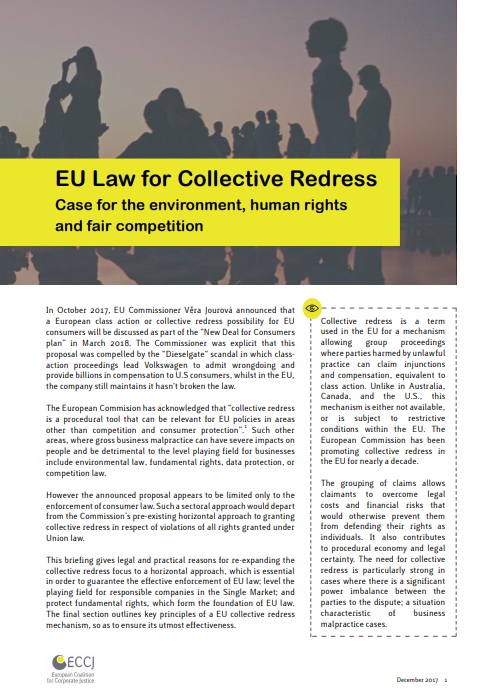This website uses cookies so that we can provide you with the best user experience possible. Cookie information is stored in your browser and performs functions such as recognising you when you return to our website and helping our team to understand which sections of the website you find most interesting and useful.

Every day around the world people are affected in their daily lives by the activities of business enterprises. Some of these effects are beneficial in terms of salaries or goods and services. Other effects, however, can inhibit the exercise of people’s human rights.
Human rights violations can take place in the workplace, where labor rights and civil rights might be infringed; in a community, where the rights of access to education, health care and the right to assemble might be limited; and in individuals’ home lives, where the rights of privacy and family life might be restricted. Sometimes, the right to life, security, housing and clean food and water are impacted. In addition to these, people are sometimes victims of rape, torture, beatings, extrajudicial killing, and other egregious abuses. The impact of abuses of human rights by business can be widespread in terms of its nature and the number of people affected.
The global reach of transnational businesses has significantly increased over the past thirty years as a result of the liberalization of international trade and investment. Yet, the conditions under which these businesses may be held liable for human rights abuses have not aligned with this evolution. Moreover, States have, in general, failed to fulfill their duty to protect human rights by ensuring that victims have access to effective remedies, including judicial remedies, particularly for human rights abuses that occur abroad (extraterritorially) at the hands of businesses. The resulting lack of access to judicial remedies provided by home States for human rights abuses by businesses, in particular those abuses that occur extraterritorially, has a considerable impact on the effective exercise of human rights.
The purpose of the Access to Judicial Remedy (A2JR) Project is to understand which barriers are most insurmountable for victims and to provide recommendations for each of the jurisdictions examined regarding how the States can better fulfill their duty to reduce these barriers and ensure victims have access to judicial remedies in their States for abuses of human rights by transnational business. The A2JR Project was commissioned by the International Corporate Accountability Roundtable (ICAR), CORE, and the European Coalition for Corporate Justice (ECCJ). It builds on the report drafted by Professor Anita Ramasastry, Professor Olivier De Schutter, Mark B. Taylor, and Robert C. Thompson,Human Rights Due Diligence: The Role of States, published in December 2012.












